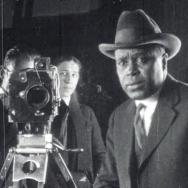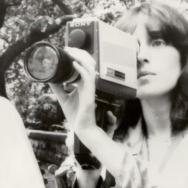From George Floyd to Laquan McDonald, video evidence has galvanized public reaction in recent cases of police violence. For University of Chicago scholar Salomé Aguilera Skvirsky, representations of police have also become an important subject of interdisciplinary study. As part of her new book project, she will explore how the disciplinarity-specific resources of cinema and media studies can also inform case law.
As a cinema and media scholar, Skvirsky thinks a lot about the evidentiary status of lens-based photographic recordings and the nature of point of view in the moving-image media. She hopes to bring some of the considerable theoretical insights that have been developed in cinema and media studies on the topic of point of view to legal discourses on body and dashboard cameras, as well as on citizen sousveillant filming practices.
“My hope is to develop scholarship that can serve as a bridge between cinema and media studies and legal studies,” she said.
Her efforts have culminated in a Mellon New Directions Fellowship, which looks for scholars whose research interests embrace formal training in a different discipline. Annually, only about a dozen scholars across the country receive this prestigious fellowship. As part of the award, Skvirsky will receive $291,000 from the Mellon Foundation over approximately the next four years.
“I wanted a systematic understanding of how the legal system handles audio-visual evidence, both historically and now, with the dramatically increased importance of media in indictments, prosecutions, and plea deals,” said Skvirsky, associate professor in the Department of Cinema and Media Studies. “I need formal legal training to make my scholarship more accurate and far-reaching.”
For her legal studies, she plans to take classes at the University of Chicago Law School; enroll in the course “Visual Persuasion in the Law” taught by Prof. Richard K. Sherwin at New York Law School; and participate in workshops and lectures of the Visual Law Project at Yale Law School, which trains students in visual advocacy.
“At the heart of Salomé’s proposal is a study of the multiple forms of moving-image media around police today,” said Prof. Daniel Morgan, chair of the Department of Cinema and Media Studies. “Gaining training in legal studies will allow Salomé to speak to legal scholars, to show them how to think carefully and critically about images, while also introducing an important set of discussions about evidence into debates within cinema and media studies.
“The legal training she gains will make her work absolutely central to the current political world.”
In addition to the Mellon Fellowship, Skvirsky also recently received the George A. and Eliza Gardner Howard Foundation Fellowship of $35,000 in support of the “Filming the Police Project.” Howard Fellowship winners are selected from applicants that are early mid-career professors.
A UChicago faculty member since 2015, Skvirsky shared that her colleagues and students have pushed her to be the best version of herself and encouraged her to re-think the taken-for-granted premises on which much scholarship depends.
Her 2020 publication, The Process Genre: Cinema and the Aesthetic of Labor, received the 2021 “Best First Book” prize from the Society for Cinema and Media Studies; it was also a finalist in the “Media and Cultural Studies” category of the 2021 PROSE Book Awards presented by the Association of American Publishers, and it was shortlisted for the 2021 Krasna-Krausz Moving Image Book Award.
“What marks Salomé’s work, especially in The Process Genre, is how she takes an initial observation or argument and then grapples with it with the highest seriousness and intellectual integrity,” said Morgan, who also serves as her mentor. “That book began with her astute observation of many sequences in key films within New Latin American cinema that show the process of labor, the step-by-step assembly or construction of objects, whether artisanal or industrial. From there, Salomé expanded outward to make sense of the widespread fascination that filmmakers, critics, and viewers have had with such processual imagery. The result is an extraordinary study that moves deftly between aesthetics and politics, materiality and form, cultural theory, and visual analysis. It is a unique and vital book.”
“The Mellon New Directions Fellowship will help me develop a deeper understanding of case law and how to do legal research,” Skvirsky said.

